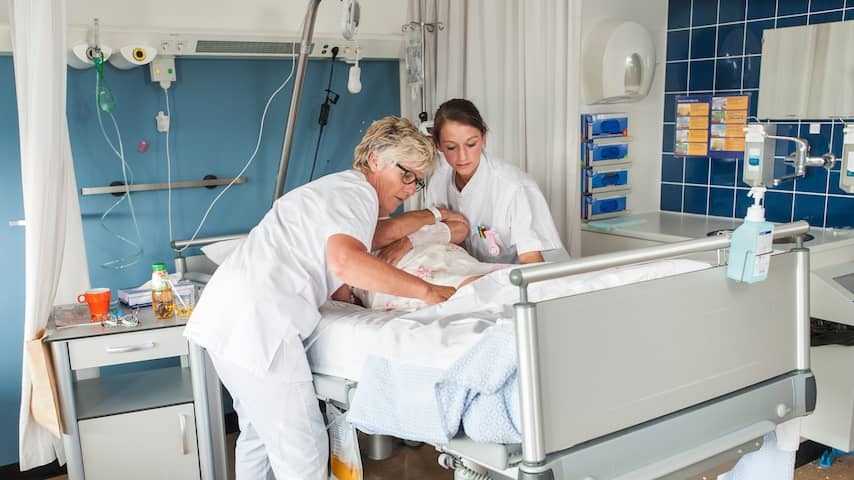
The healthcare sector sees no benefit in the arrival of labor migrants to solve staff shortages, as former minister Fleur Agema (Public Health) recently suggested. Housing and language barriers, in particular, pose a problem, according to a survey by NU.nl.
In addition, foreign diplomas often do not sufficiently match the requirements in our country. “The use of labor migrants is not a quick and easy solution to solve the staff shortage,” says a spokesperson for the Dutch mental healthcare association, the sector association for mental health and addiction care.
Moreover, according to the Dutch mental healthcare association, it will be difficult for these employees to obtain a BIG registration. With such registration, an employer in the healthcare sector can see if someone is qualified to practice their profession. Dutch diplomas are required to obtain a BIG registration, which labor migrants do not have. “In addition, proficiency in the Dutch language is very important,” says the spokesperson.
ActiZ, the sector association of some 400 healthcare organizations that care for more than 2 million vulnerable elderly and chronically ill people with 400,000 employees, says it focuses on potential staff already living in the Netherlands.
“We are mainly looking for people who live in the Netherlands and can immediately work in permanent employment. We do not see the use of labor migrants as an option. You will also have to deal with housing and language barriers. Perhaps there is a healthcare institution here and there that does use it, but that is really an exception.”
Shortage has been a major problem in healthcare for years
The shortage in the labor market has been a major problem for years. There is also a major shortage of staff in healthcare. In the first quarter, the number of vacancies rose to over 50,000.
And the expectation is that the shortage in healthcare will increase sharply in the coming years due to the aging population. Former minister Agema said in May that labor migrants can solve part of the problem.
According to labor sociologist Fabian Dekker, the focus must then be on targeted migration. “It is true that language, diplomas and housing are a problem. But if we bring in highly skilled knowledge migrants, part of the problem is solved. You can further train these people yourself.”
Moreover, according to Dekker, much can be arranged at European level. “That means that the same quality requirements must apply within the European Union for people who want to work in healthcare.”
‘Labor migration is not a structural solution’
The Dutch Federation of University Medical Centers (NFU) says it understands the concerns about the increasing staff shortage in healthcare.
“We do not principally rule out labor migration, but in our opinion it is not a structural or ideal solution. In addition to practical challenges, such as diploma recognition and language barriers, there are also ethical dilemmas. For example, the impact on healthcare capacity in the countries of origin.”
The NFU therefore calls for structural solutions: by training sufficient healthcare professionals and making working in healthcare more attractive and keeping it that way.
“This is the only way we can build a sustainable approach to the staff shortage. And if labor migration is used anyway, it is essential that the preconditions are in order. Think of accelerated diploma recognition, clear admission criteria and accessible further training. Regulations must support this, not unnecessarily delay it,” says a spokesperson.
‘Keep working in healthcare attractive’
According to the Dutch Association of Hospitals (NVZ), it is especially important to keep working in healthcare attractive.
“Hospitals are therefore committed to good employment conditions and many learning and development opportunities. Furthermore, it is very important to focus on prevention, labor-saving technology, such as artificial intelligence, and improved collaboration between the various healthcare domains,” says a spokesperson.
According to the NVZ, it is up to individual hospitals to investigate whether labor migration can make a positive contribution to solving the staff shortage for them.